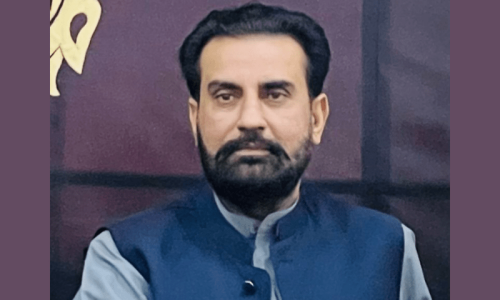LAHORE, May 29: The Human Rights Commission of Pakistan (HRCP) said on Thursday it was happy to see Pakistan win the membership of the UN Human Rights Council (UNHRC) for the second term, but expressed concern about Pakistani representatives’ “misleading statements” to the body.
The UNHRC is the international body within the United Nations System whose stated purpose is to address human rights violations. It was established by the UN General Assembly in 2006 as a successor to the United Nations Commission on Human Rights.
In a statement issued here, HRCP secretary-general IA Rehman said the rights group had keenly followed the Universal Periodic Review of Pakistan carried out by the UNHRC. He said the HRCP hoped the government would honour its commitments and follow recommendations made by the UNHRC. He urged the government to play a constructive role in the world body and improve its human rights record.
Mr Rehman however accused Pakistan’s representative to the UNHRC of misleading the UN body in the past with regard to the government-initiated consultation of rights organisations in Pakistan. He said no dialogue was held with non-government rights groups and that rights defenders were being beaten, imprisoned and tortured regularly.
The HRCP representative accused Pakistani representatives of misleading the UNHRC on the position of religious minorities in Pakistan in which they said that incidents of abuse against religious minorities were ‘insignificant’. He said the HRCP rejected the government’s denial of a caste system in Pakistan and pointed to low-caste Hindus being exploited in Sindh. He rejected the government’s position stated to the UNHRC on the controversial Hudood Ordinance. He said the government’s assurance that its security forces were trained in humanitarian law was misleading, adding: “A large number of non-combatants have been targeted and killed by security forces and no inquiry or investigation has been carried out.”
Mr Rehman said HRCP was encouraged by the government’s proposal to commute the death penalty to life imprisonment, though the government’s overall position on the issue remained ‘ambivalent’. He said the government’s claim that the death penalty was imposed only after exhaustion of all remedies through due process was a “tall claim” and that HRCP disputed it vehemently. At present Pakistan has 7,500 prisoners, including women, on death row and that due process and safeguards have not been imposed on those convicted of capital punishment.
He praised the government for setting up an independent national human rights body and called the move a “step in the right direction”. He said HRCP was encouraged by the government’s undertaking to accede to the International Convention for the Protection of All Persons from Enforced Disappearances. “It will lend credibility to the new government as it has promised to investigate cases of disappearances,” said Mr Rehman.















































Dear visitor, the comments section is undergoing an overhaul and will return soon.